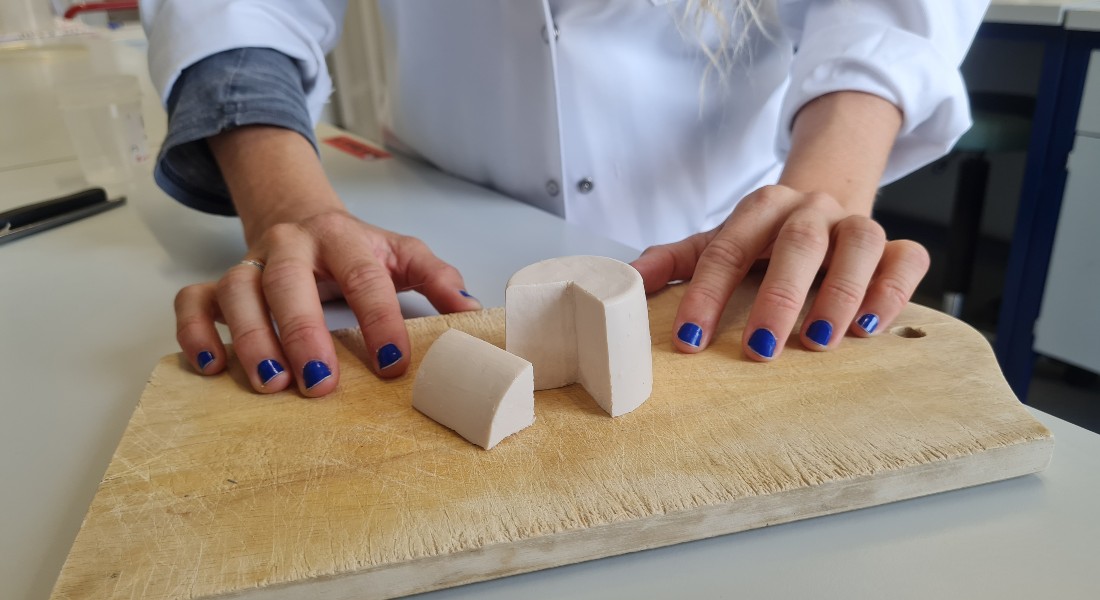To produce plant-based cheeses that feel and taste like dairy cheese, scientists have their sights set on fermentation. In a new research result, University of Copenhagen scientists demonstrate the potential of fermentation for producing climate-friendly cheeses that people want to eat.

Nearly thirty kilos of cheese are eaten by the average dairy-loving Dane every year. But increasing pressure on Earth's resources and climate change call for our food system to turn in a more plant-based direction. As a result, scientists are looking into how to transform protein-rich plants like peas and beans into a new generation of non-dairy cheeses that possess the similar sensory properties as the dairy-based ones that humans have enjoyed for thousands of years.
Several plant-based cheeses are already on the market. The challenge is that plant proteins behave differently than milk proteins when trying to make cheese from them. To meet this challenge, producers add starch or coconut oil to harden plant cheeses, as well as an array of flavourants to make them taste like cheese.
But it turns out that this can be done with the help of nature's smallest creatures. In a new research result from the University of Copenhagen's Department of Food Science, researcher Carmen Masiá has succeeded in developing plant-based cheeses made from yellow pea protein with a firm texture and improved aroma profile. She was able to do so by using the same natural fermentation process with bacteria that we have used with cheeses made from milk for thousands of years.
"Fermentation is an incredibly powerful tool to develop flavour and texture in plant-based cheeses. In this study, we show that bacteria can serve to develop firmness in non-dairy cheese in a very short period of time while reducing the bean-like aroma of yellow pea protein, which is used as the main and only protein source," explains Carmen Masiá.
Fresh cheese after eight hours
The result builds upon a research result from last year by the same researcher, who found that yellow pea protein constituted a good "protein base" for making fermented plant-based cheese. In the new result, the researcher examined twenty four bacterial combinations made from bacterial cultures supplied by the biotech company Chr. Hansen, where Carmen Masiá is completing her Industrial PhD.
"The whole point of this study has been to combine the commercially-available bacterial cultures that are suitable for the fermentation of a plant-based raw material, and test them in a pea protein matrix to develop both taste and texture that would be suitable for a cheese-like product. And, even if some bacterial combinations performed better than others, all of them actually provided firm gels and reduced beaniness in the samples" says the researcher.
To study the behavior of the bacterial combinations, the scientist inoculated them in a protein base made of yellow pea protein. After only eight hours of incubation, the result was a firm "cheese-like gel" reminiscent of a fresh soft white cheese.






